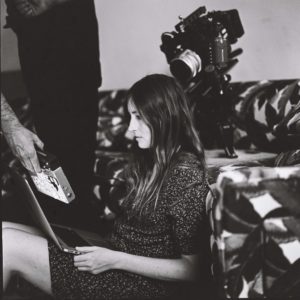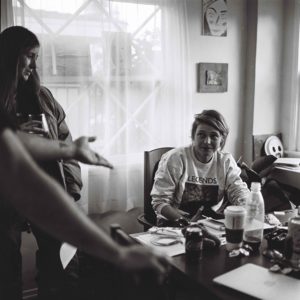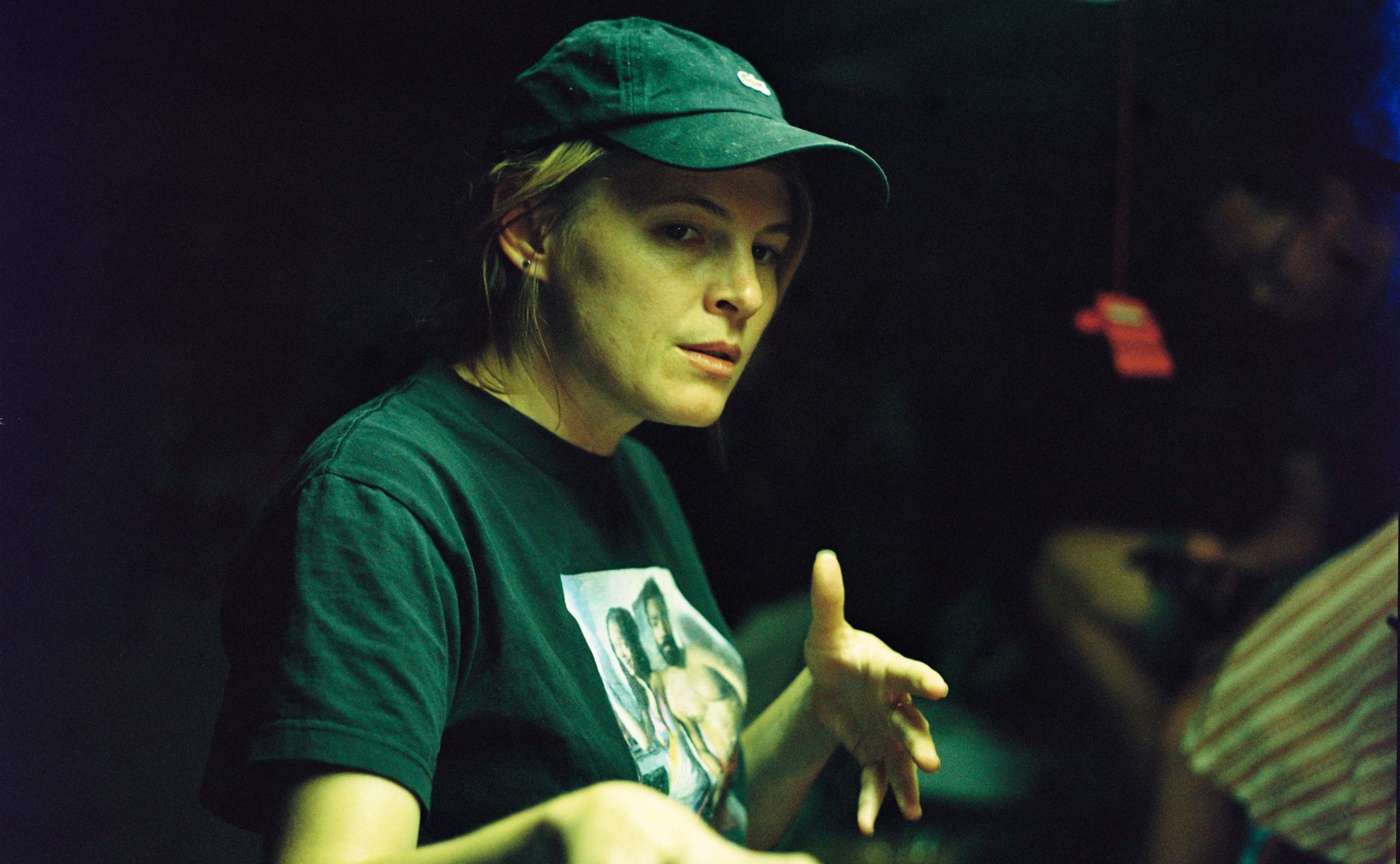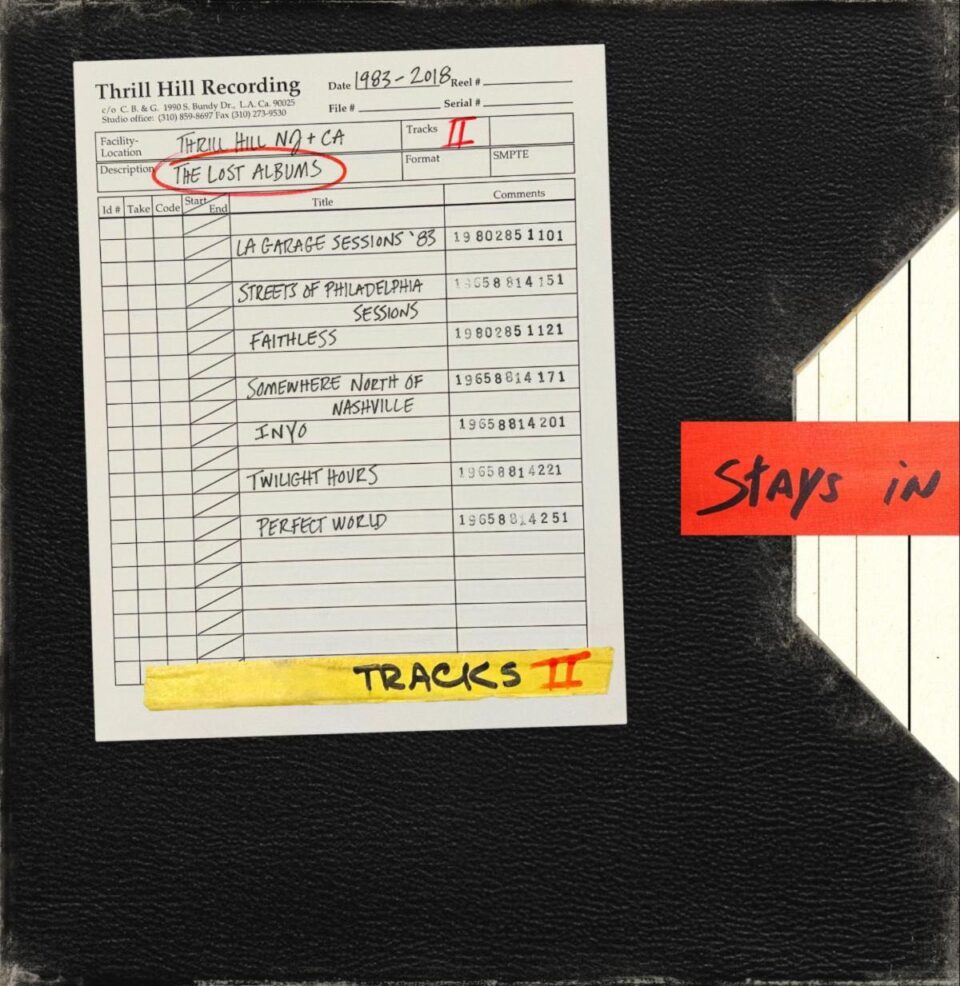Lying awake at night, overwhelmed with philosophical reservations, we’ve all pondered our own mortality and been perturbed by the lack of answers about our purpose. That fear of what comes after we depart this physical realm—if anything—and the fickleness of life itself tinge Amy Seimetz’s new feature She Dies Tomorrow, a psychedelic and profoundly unsettling ride guaranteed to get under your skin and make you reassess your relationship with death.
Unable to properly premiere at SXSW in Austin in the early days of the COVID-19 pandemic, the infectious quality of the terror on display rings eerily timely. Though a serendipitous occurrence, it’ll prove difficult to disassociate themes Seimetz engages with from the moment we are collective suffering through.
Seimetz’s recurrent creative partner Kate Lyn Sheil (also in the director’s debut, Sun Don’t Shine, and the TV series The Girlfriend Experience co-created by Seimetz) stars here as a character aptly named Amy, who’s been contaminated with a grim epiphany. Even if there’s no visible danger in sight, she knows her hours are numbered and tries to take charge of the emotions this realization sets off. Somewhere between panic and an extreme sense of freedom, Amy accepts her fate.
Harnessing great lighting choices to replicate the experience of leaving this world, and maintaining an uncanny tone with dashes of absurdity, Seimetz mesmerizes with a troublingly effective film. It differs in energy from the story of a couple on the run after having committed a gruesome crime in Sun Don’t Shine, but carries over similar concerns for the insignificance of the human experience.
We caught up with the acclaimed filmmaker to chat about her addiction to the news and how every step we take represents—even if we aren’t conscious of it—a deathly risk.
Where did the concept of treating fear as an infectious disease that can be transmitted to others come from?
I was dealing with my own anxiety and I was calling loved ones trying to talk. In talking about it with them, I felt like I was burdening them with my anxiety. And then, in addition to that, I’m sort of a news junkie, so I watched the news constantly. Admittedly I was sort of addicted to it, and I found myself looking to the news and realizing that fear, on so many levels, was spreading—whatever political spectrum you were on or wherever you were. These ideas were spreading because people were repeating the headline of the news, but they weren’t actually drilling down to see how complicated the actual fact was.
So all of these ideas were spreading like wildfire. I guess I became addicted to the news leading up to the 2016 elections like, “Oh my God, what’s going to happen next?” And just watching everyone around me spread these ideas, whether they were progressive or right wing. It was like watching how pervasive ideas were spreading like a contagion essentially.
For the characters in the film there seem to be two paths: Some of them take the news with terror and others appear to be almost liberated. In real life we might all fall into those categories. Tell me about how you dealt with this duality in the story.
I was reading these studies that there’s this thing called “proximal” and “distal” responses to your own mortality. Some people respond by thinking, “You’re going to die tomorrow,” or “You’re going to die at some point,” while other people are like, “Fuck it, I’m going to smoke cigarettes, do a bunch of drugs, jump out of airplanes, and take these risks because who cares?” Then there’s some people who are like, “Nope, I’m going to exercise, take care of my body, and make sure that I’m healthy so that I can live longer than I would if I don’t take care of myself.” There are many, many, many other different responses and I’ve read all these studies.
“I found myself looking to the news and realizing that fear, on so many levels, was spreading—whatever political spectrum you were on or wherever you were.”
Dealing with death on a personal level, I’ve had different responses to it, which could be surrender or an out-of-body experience, drifting like I don’t know what reality is. Then there are some people who want to blame somebody for the death. There are also people who have so much regret because of death. There are so many different responses, and truthfully we all—or at I’ve gone through all of those emotions depending on which phase I’m at. I’ve gone through every response that the characters are going through in the grieving process.
The night after I watched the film, I had nightmares about all the horrible possible scenarios Jane Adams’ character lists. How do you deal with the notion that we are all so close to death every day, not only with the pandemic now, but also because of accidents and how unpredictable our lives are?
Sorry, for the nightmares by the way. It’s hard. It’s not like I’m running around thinking everything’s going to kill me, but there are these fleeting moments where suddenly I’m like, “Woah, I’m testing fate every time I walk out of my door.” I don’t live my life that way, but especially now during corona, you do feel like leaving your house is a gamble. We know certain things, but there’s so much that’s unknown that everything becomes a landmine.
But even before the coronavirus, I’ve felt that way. We put so much trust in humanity to leave the house. Who’s saying that when I leave the house somebody isn’t just going to be like, “You know what, I’m going to strangle her?” The only thing that’s holding the fabric of society and your safety together is this moral compass that we’ve come up with as human beings—and if or when that gets disrupted, who’s to say everything doesn’t go into chaos and you’re just going to die?

Kate Lyn Sheil
Not to scare anyone further than what the movie does, but it’s just something that I think about—not all the time, but sometimes I do have these fleeting moments of sheer terror, like with semis on the highway, with air conditioners that might drop out of a window in New York City, or anything that Jane’s saying in the movie, pretty much is me saying what I think about sometimes. It’s all-encompassing—like, I can feel it in my diaphragm, which is why I was trying to get out of the movie.
One of the most entrancing elements of the movie is how you use colors to create a sensorial experience for the viewer. It goes beyond emotional uneasiness we get from the content of the scenes, but something we can sense visually. What’s the significance of these color washes?
Just reading about near-death experiences and knowing physiologically what happens to the body when you die. Everything in your body, all the chemicals in your brain, and everything that’s keeping you sort of aligned releases. Everything just kind of goes, including your muscles and a lot of other things I won’t say. From what people say and what the theories are, there’s also this flooded, like, DMT that’s in your pineal gland. It’s the part of your brain at work when you dream, and that produces melatonin.
“The only thing that’s holding the fabric of society and your safety together is this moral compass that we’ve come up with as human beings—and if or when that gets disrupted, who’s to say everything doesn’t go into chaos and you’re just going to die?”
They believe that when you die all of these things are released and that—depending on what your beliefs are, which I’m not trying to take away from—[you see lights] because there are all these chemicals being released into your body and it’s helping your body not panic as it goes. But nobody really knows exactly. I was trying to mimic whatever I had read, what my cinematographer [Jay Keitel] had read, and in turn what my sound designer Mary Ellen Porto read about what it would feel like if we could reach this ecstatic state sonically, but then also visually. It’s like a bombardment of fear, ecstasy, curiosity, and surrender in a way, both in the sound design and visually speaking.
Was this the same train of thought for the microscope imagery that we see throughout the narrative, or were you making other connections or references through these psychedelic emulsions?
The human body fascinates me. We know enough to help with its problems, but we don’t know why it became this incredibly high-functioning machine. It’s a total mystery. When the heart stops, it just stops. It’s both so simple and so hard to comprehend when you’re dealing with somebody who dies. That’s been endlessly hard for me to process. It’s incredibly simple, yet incredibly complicated.
We were dealing with these things within the body, but then also using the imagery that Jay and I discussed to say, “We don’t know what the universe is, just in the same way that we don’t know why our bodies work,” and sort of tying those together, which is not new material. Sounds like I’m smoking a lot of weed, but it’s endlessly fascinating. The unknown and death and the body are sort of the same thing to me. The unknown is part of the language of the film.

There’s a level of absurdity, and in turn humor, in some of the characters’ interactions and reactions—my favorite being the scene featuring Michelle Rodriguez in such a nonchalant part. Did you envision that moment specifically for her?
She’s amazing—she literally had, like, one day to do [the movie]. I had lunch with her and I just loved her. She was like, “Listen, I just want to make really cool stuff. Let me know when you’re doing it.” That was a few years ago. She was like, “I’m doing my last day of Fast and Furious. I have a day, let’s go.” I told her what the movie is about. Part of the movie definitely has a sense of humor, making fun of myself, but also making fun of the absurdity of the fact that we fucking die to begin with. She just got it and was like, “You are speaking my language.” She just jumped right in.
I know basically most of the people in the movie except Michelle and Josh Lucas, who I didn’t know that well. She was sort of a live wire, which helped because as a director, I could predict what my other actors were going to do or what energy they were going to bring to it because I knew them so well. But what was so magnificent about what she brought was that she just eased into my crew and my cast, specifically with Olivia [Taylor Dudley] and Jane. It was so seamless, while she also had this whole other energy and humor.
There’s also, of course, the great Kate Lyn Sheil, who’s by now a fixture in your work. Looking at Sun Don’t Shine and She Dies Tomorrow, I wonder if you feel there are parallels between the women she plays in each of them?
“It’s like a bombardment of fear, ecstasy, curiosity, and surrender in a way, both in the sound design and visually speaking.”
Each is a different ride of emotion. I’m not quite sure, but I feel there’s a resistance in Crystal [Shiel’s character] in Sun Don’t Shine, because the movie in essence is about denial of death and denial about a body being in the back of the car. Because of that resistance, it becomes a more explosive performance and explosive display of emotions. I’m still trying to understand human behavior, just in general. I’m not a trained psychologist. I’m just a writer, but at least for me in observing when there’s explosive behavior there’s a tension and there’s a denial of something. That’s why her performance in Sun Don’t Shine is wild, and then dreamy and all over the place. It’s like she’s trying to deny something in a way.
Whereas in She Dies Tomorrow, it’s about the confrontation of death. It’s about acknowledging death and in her performance when we meet her, she’s letting it sink in. In the beginning of the movie when you see her in the house, she just knows—I don’t know how to describe it. We’re touching something very visceral. Since she just knows, there is no crying about it. She tries to cry because she’s like, “How am I supposed to emote this? What am I supposed to feel? Because I just know. What do I do to express that I know?”
She’s trying to cry, she’s trying to connect to things around her. Then she’s just like, “I’m just going to ride the wave and accept it.” The only time she’s able to cry or to have any sort of release is at the end of the movie when she acknowledges that she’s not OK, but that’s OK. It’s an acknowledgement of, “It’s OK to not know what to do. It’s OK to not know what to feel. It’s OK to not really understand anything.” FL









